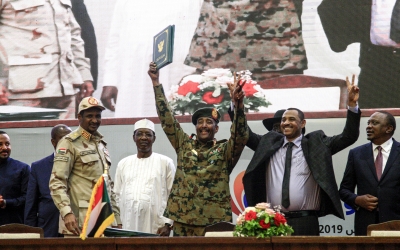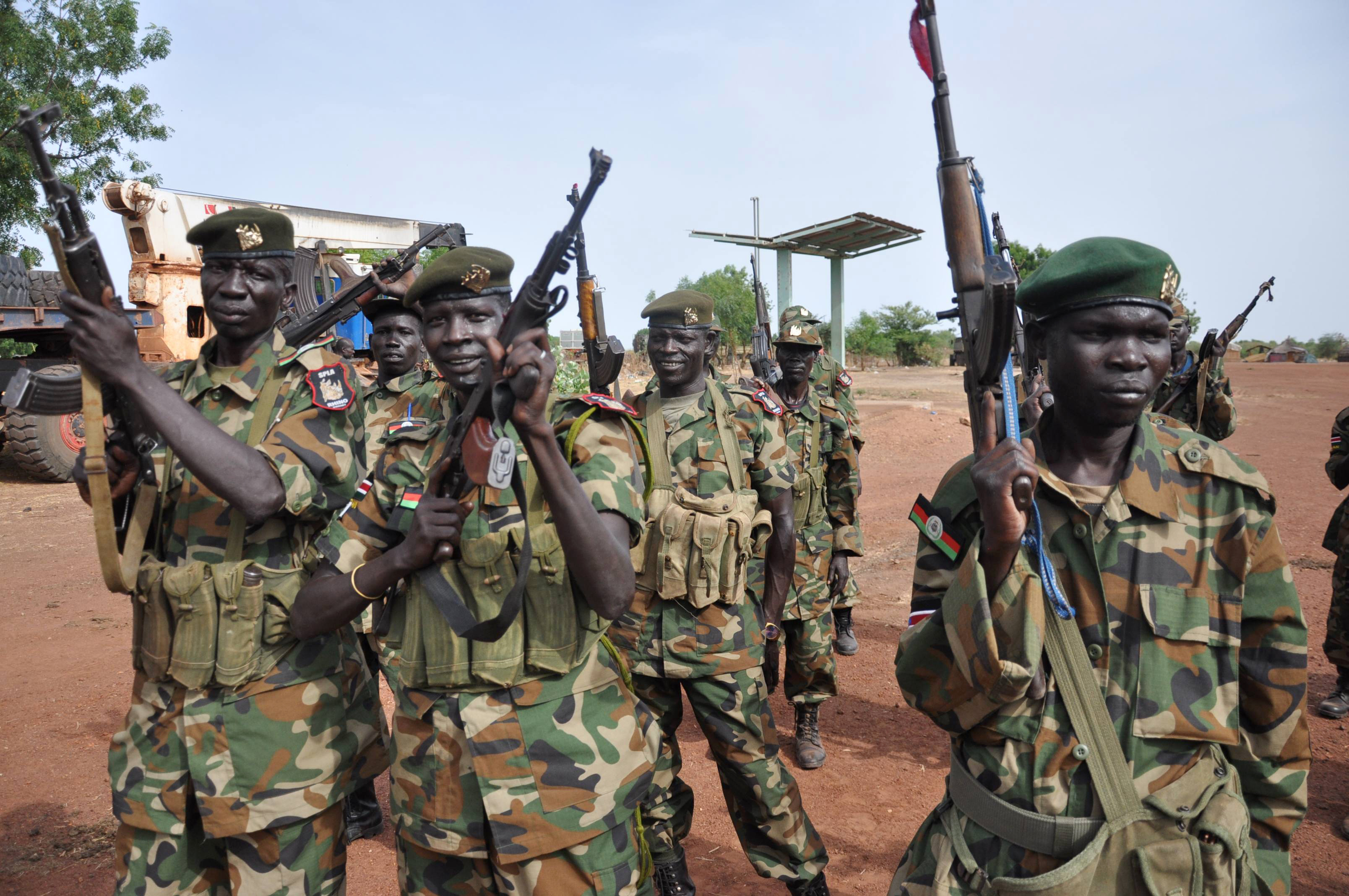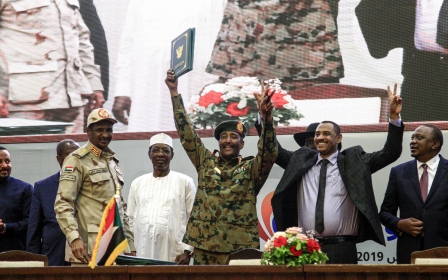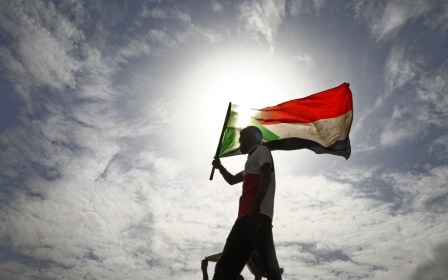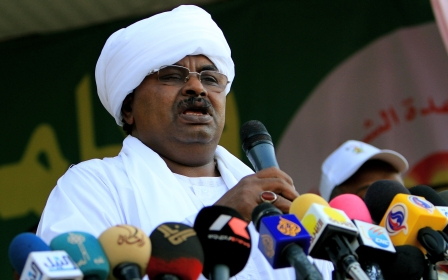Sudanese landmark agreement receives mixed reception

While a landmark deal paving the way to democracy in Sudan has been met with jubilation on the streets of Khartoum, far away in the country's troubled Darfur region rebels and victims of war have voiced discontent.
Speaking to MEE, one rebel movement said the agreement is likely to lead to confrontation.
Thousands thronged the streets of Khartoum on Saturday, surfed on trains arriving from up-country provinces, and chanted revolutionary demands for democracy, peace and justice, as a "constitutional declaration" was signed ending months of gridlock between the army and protest groups.
The Transitional Military Council (TMC) and an alliance of opposition groups under the banner of the Forces for Freedom and Change (FFC) put pen to paper at a ceremony by the Nile, as the country took a crucial step on the road to democracy after 30 years of dictatorship under now-deposed president Omar al-Bashir.
Brokered by the African Union and Ethiopia, the agreement will lead to the creation of an 11-member civilian-military council that will govern for an interim period of 39 months before elections are held. On Sunday, the FFC and the TMC were set to announce their representatives for the council.
New MEE newsletter: Jerusalem Dispatch
Sign up to get the latest insights and analysis on Israel-Palestine, alongside Turkey Unpacked and other MEE newsletters
Still, the day closed with no announcement, AFP said. It was unclear what was holding up the announcement of the council's full line-up, which is now expected on Monday.
The deal has sparked disagreement among the FFC, with its wholesale rejection by Sudanese rebel movements operating in the country's Darfur region who claim the compromise fails to address the root causes of the crisis facing the country.
The agreement has also failed to bring on board other partners, including the Communist Party and those affected by armed forces violations, which have left more than 250 people dead since the protests began late last year.
Addressing this last grievance, FFC leader Mohamed Nagi Alasam vowed at the signing ceremony, which was also attended by Ethiopian Prime Minister Abiy Ahmed and South Sudanese President Salva Kiir, to "never forget the victims and the martyrs, and the formation of the independent national investigation committee is our first duty in the transitional period."
He also pointed to the indictment of ousted president Bashir by the International Criminal Court as a sign that justice would be served.
In an attempt to allay fears over the army's relative strength, TMC chairman Abdul Fattah al-Burhan stressed: "We confirm the readiness of the national army to protect the democratic transformation and the civil authority of the country."
'Not the end of the revolution'
University student Islam Mohamed, 22, told MEE he was happy that the agreement would pave the way for a final transfer of power to civilian rule.
"We are happy to see the signing of this agreement because we have begun utilising our goals of creating the civil government," he said.
Another protester, banker Hind Ali, 33, said the agreement did not fulfil her hopes, but it was a positive step towards meeting the objectives of the revolution.
"I do believe that this is not the end of the revolution because it doesn't address the entire demands of our revolution, but it's a step on the right path towards the democratic transformation," she said.
Meanwhile, in the country's troubled Darfur, protests erupted at camps for internally displaced persons (IDPs) in Zamzam, Kalma, Abu Shook and others in North and South Darfur state.
Bashir is accused of waging a genocide there against non-Arab ethnic groups, spearheaded by the feared Janjaweed, an Arab militia which is linked to the TMC.
At least 300,000 have died according to UN estimates, with an even greater number displaced by the fighting.
Elites 'stealing' the revolution
Adam Ahmed, a 35-year-old IDP from Zamzam camp, said that what the agreement ignored was the demands and rights of war victims.
Talking to MEE by phone from the camp, Ahmed said: "We will continue protesting, raising our voice and demands until they will hear us, and they should hear and consider it."
At the signing ceremony, FFC member Alasam addressed the rebel movements, some of which operate in Darfur, urging them to "put down the guns and join the process ... we commit ourselves to bring peace through dialogue with our comrades in the rebel movements".
'The elites of Khartoum now are stealing the revolution, and we warn that such attempts won't go without confrontation'
Abdul Rahman Alanir - Sudan Liberation Movement
But Sudanese rebel movements have said the agreement fails to address the root causes of the war and have rejected it.
The Sudan Liberation Movement's Minawi faction spokesman, Mohamed Hassan Haroun, told MEE that the current agreement broke a deal that a month would be given before a cabinet was chosen to allow enough time for other groups to participate in the process.
"We agreed to allocate one month before the picking of the members of the entire institutions of the transitional period so that can enable all the parties to participate in this process, but what happened is that we were ignored," he said.
Meanwhile, the Sudan Liberation Movement's Abdul Wahid Alnur faction spokesman, Abdul Rahman Alanir, accused the FFC of "stealing" the revolution.
"The elites of Khartoum now are stealing the revolution, and we warn that such attempts won't go without confrontation by the revolutionary forces of the youth and rebel movement and the victims of wars and others," he said.
Middle East Eye delivers independent and unrivalled coverage and analysis of the Middle East, North Africa and beyond. To learn more about republishing this content and the associated fees, please fill out this form. More about MEE can be found here.


